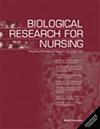以家庭为基础的糖尿病管理干预对 2 型糖尿病成人糖化血红蛋白的影响:随机对照试验的系统回顾和元分析
IF 1.9
4区 医学
Q2 NURSING
引用次数: 0
摘要
背景:糖化血红蛋白(HbA1c)控制是2型糖尿病(T2DM)治疗的关键目标,需要终生承诺和家庭支持。本研究旨在评估以家庭为基础的糖尿病管理干预对成年T2DM患者HbA1c的有效性。方法:从成立到2022年,在PubMed、ProQuest、Scopus、CORE和Cochrane图书馆进行了全面的文献检索。使用乔安娜布里格斯研究所(JBI)关键评估工具评估研究的质量。效应量采用标准差(SD)计算,异质性程度采用Higgins I2检验评估。进行亚组分析以探索导致试验间异质性来源的因素。遵循系统评价和荟萃分析首选报告项目(PRISMA),并在PROSPERO上注册CRD42022384034。结果:共有18项随机对照试验(RCTs)涉及2815名参与者,结果表明,以家庭为基础的糖尿病管理干预对改善HbA1c有统计学显著影响(Mean Difference [MD] = - 0.47;95%置信区间[CI]:−。64 ~−。30, p < .001),异质性中等(I2 = 59%)。亚组分析表明,与发达国家相比,发展中国家以家庭为基础的糖尿病管理干预对改善成人T2DM患者的HbA1c水平更有效。结论:以家庭为基础的糖尿病管理干预可改善HbA1c。需要进一步的研究来制定以家庭为中心的糖尿病管理策略,明确定义家庭的参与。本文章由计算机程序翻译,如有差异,请以英文原文为准。
Effectiveness of Family-Based Diabetes Management Intervention on Glycated Haemoglobin Among Adults With Type 2 Diabetes: A Systematic Review and Meta-Analysis of Randomized Controlled Trials
Background: Glycated hemoglobin (HbA1c) control is a crucial goal in the management of type 2 diabetes mellitus (T2DM), requiring lifelong commitment and family support. This study aimed to assess the effectiveness of family-based diabetes management intervention on HbA1c among adults with T2DM. Methods: From inception up to 2022, a comprehensive literature search was conducted across PubMed, ProQuest, Scopus, CORE, and the Cochrane Library. The quality of studies was evaluated using the Joanna Briggs Institute (JBI) Critical Appraisal tools. Effect sizes were calculated using standard deviations (SD), while the degree of heterogeneity was evaluated using the Higgins I2 test. Subgroup analyses were performed to explore factors contributing to sources of heterogeneity among trials. The Preferred Reporting Items for Systematic Reviews and Meta-Analyses (PRISMA) were followed, and the protocol was registered with PROSPERO CRD42022384034. Results: A total of 18 randomized controlled trials (RCTs) involving 2815 participants indicated that family-based diabetes management intervention had a statistically significant impact on improving HbA1c (Mean Difference [MD] = −.47; 95% Confidence Interval [CI]: −.64 to −.30, p < .001) with a moderate level of heterogeneity (I2 = 59%). Subgroup analysis indicated that family-based diabetes management intervention among adults with T2DM in developing regions was more effective in improving HbA1c levels compared to developed countries. Conclusion: Family-based diabetes management interventions improved HbA1c. Further research is required to develop diabetes management strategies with a family focus that clearly defines the family’s involvement.
求助全文
通过发布文献求助,成功后即可免费获取论文全文。
去求助
来源期刊
CiteScore
5.10
自引率
4.00%
发文量
58
审稿时长
>12 weeks
期刊介绍:
Biological Research For Nursing (BRN) is a peer-reviewed quarterly journal that helps nurse researchers, educators, and practitioners integrate information from many basic disciplines; biology, physiology, chemistry, health policy, business, engineering, education, communication and the social sciences into nursing research, theory and clinical practice. This journal is a member of the Committee on Publication Ethics (COPE)

 求助内容:
求助内容: 应助结果提醒方式:
应助结果提醒方式:


